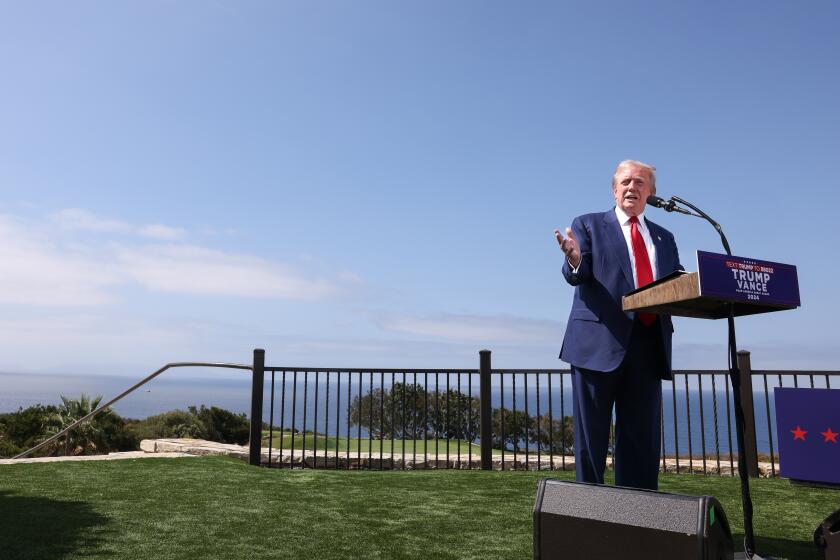FBI improperly investigated activists, Justice Department review finds
FBI agents improperly opened investigations into Greenpeace and several other domestic advocacy groups after the Sept. 11 terrorist attacks in 2001, and put the names of some of their members on terrorist watch lists based on evidence that turned out to be “factually weak,” the Justice Department said Monday.
However, the internal review by Inspector General Glenn A. Fine did not conclude that the FBI purposely targeted the groups or their members, as many civil liberties advocates had charged, after antiwar rallies and other protests were held during the administration of President George W. Bush.
But Fine said the FBI tactics appeared “troubling” in singling out some of the domestic groups for investigations that lasted up to five years, and were extended “without adequate basis.” He also questioned why the FBI continued to maintain investigative files against the groups.
“In several cases there was little indication of any possible federal crimes,” Fine said. “In some cases, the FBI classified some investigations relating to nonviolent civil disobedience under its ‘acts of terrorism’ classification.”
In addition to the environmental group Greenpeace, the FBI investigated People for the Ethical Treatment of Animals, or PETA, and the antiwar groups Catholic Worker and Thomas Merton Center.
Timothy P. Murphy, the FBI’s deputy director, defended the investigations, saying they were launched after tips suggested potential criminal activities. “We are pleased the report concludes the FBI did not target any groups for investigation on the basis of their 1st Amendment activities,” Murphy said.
He conceded that some “inaccurate information” gleaned from the investigations was passed up to FBI Director Robert S. Mueller III, who used it in congressional testimony when he said the FBI had gathered information that “certain persons of interest” were believed connected to terrorism and expected to attend a 2002 antiwar rally by the Thomas Merton Center, which was founded in Pittsburgh in 1972 to oppose the Vietnam War.
Michael Drohan, president of the Thomas Merton Center’s board of directors, said he thought the FBI targeted the center and others to scare people away from joining their causes.
“It is somewhat troubling that in the name of combating terrorism, they would choose an organization that they know is bent on the principle of nonviolence,” Drohan said, adding that it was “a bit outrageous” that taxpayer money was used for such surveillance.
The Justice Department investigation determined that a probationary FBI agent was sent to a Merton Center rally in 2002 on what the FBI field office in Pittsburgh called a “slow work day” — the day after Thanksgiving. He could not find any obvious terrorism suspects, but photographed a Middle Eastern woman “in order to have something to show his supervisor.”
The FBI conducted an investigation into Greenpeace’s planned protests at shareholder meetings for two companies in Texas, and kept the inquiry open “for over three years, long past the shareholder meetings that the subjects were supposedly planning to disrupt.”
In addition, the bureau classified its investigation as an “act of terrorism” case and placed several Greenpeace members on its federal watch list.
“We’ve had the attention of law enforcement for years,” said Greenpeace senior researcher Mark Floegel. “We’re always aware there’s some kind of buzz around us, and that’s fine. We operate out in the open. But at the same time, Greenpeace cannot protect the environment without democracy, and we can’t have democracy if the government doesn’t respect our rights.”
Asked about the surveillance, Ingrid E. Newkirk, president of PETA, said, “The FBI’s ham-handed attempt to catch us with our pants down ended up backfiring. As a result, the FBI was caught with its pants down.”
richard.serrano@latimes.com
More to Read
Get the L.A. Times Politics newsletter
Deeply reported insights into legislation, politics and policy from Sacramento, Washington and beyond. In your inbox three times per week.
You may occasionally receive promotional content from the Los Angeles Times.











